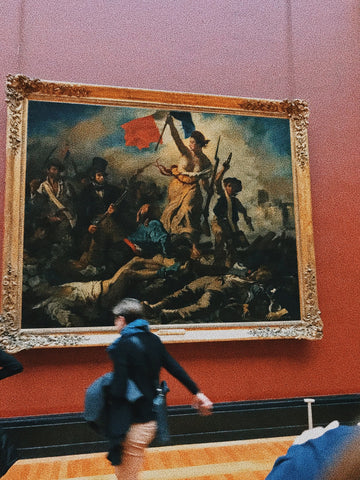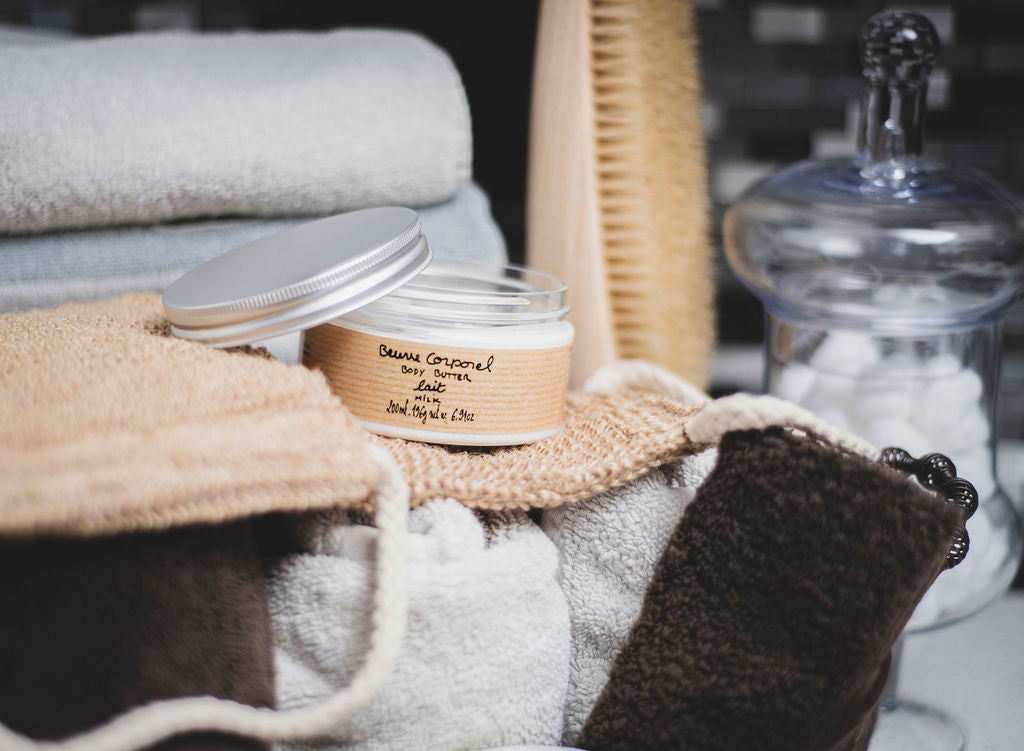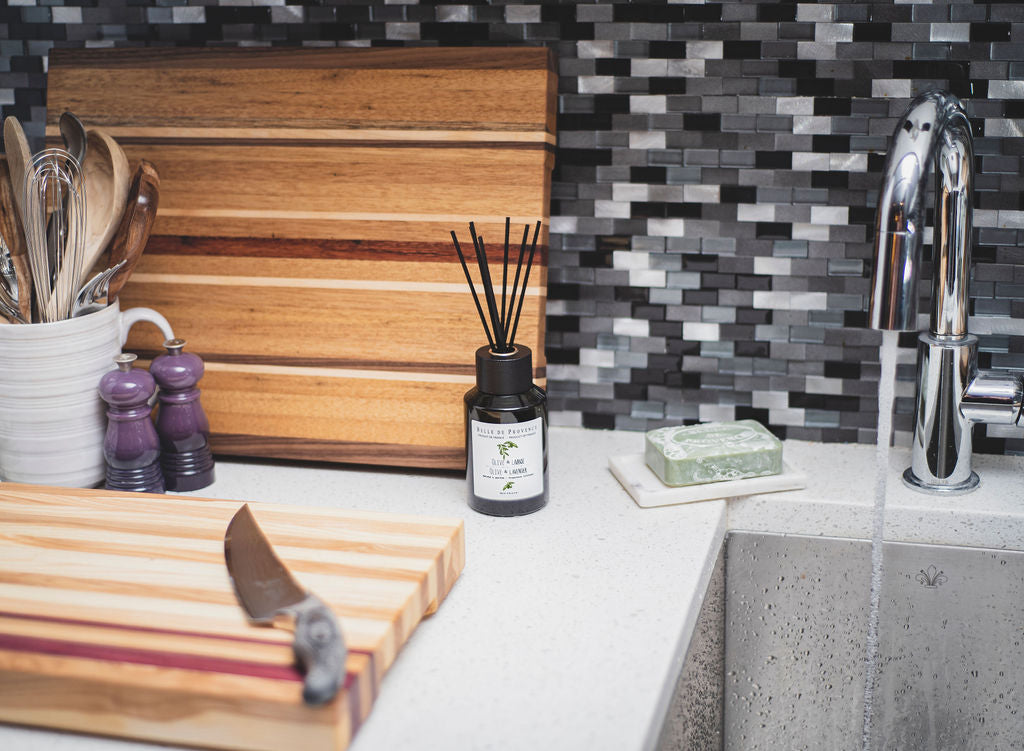According to polls, the French accent is the sexiest, the French language is the language of love, and Paris is viewed as the capitol of romance around the world. But where does this sweeping idea come from?
We are diving into the history of courtly love, troubadours, romanticism, and the French cultural impact as we explore how the image of ‘lovers in Paris’ came to be.
French History: Courtly Love, Troubadours & Romanticism
Love hasn’t always been the key ingredient for a successful romantic relationship. In fact, marriage for most of human history was viewed more as an economic or political transaction rather than a romantic decision. The idea of ‘true love’ wasn’t a reality or a necessity.
However, if we jump to the 11th and 12th centuries, a different idea of love formed during the Middle Ages in Europe. L'amour courtois, la fin'amor or courtly love was created. It was based both on desire and courtesy. The courtesy element was based on a set of values and good manners cherished particularly amongst middle nobility.
It was an idealized love, often secretive and existing outside of the institution of marriage, with many works highlighted both passion and despair.

These themes were explored extensively by troubadours in Southern France during this period. The name ‘troubadour’ may derive from the Occitan verb ‘trobar’ meaning to compose, while other experts believe it may come from the Arabic ‘tarab’ meaning song, poem, intense emotion – both etymologies create an apt picture of the role of a troubadour.
From Provence, Folquet de Marselha became a famed troubadour in the 1170s. He was primarily known for his love songs. While he later became an anti-Cathar bishop of Toulouse, he work was acclaimed and his songs were praised by even Dante. Nancy Ellen Washer explores Folquet’s words and melodies with a selection from Manuscript G, which perfectly encapsulate the sentiments of courtly love:
|
“While singing it happens that I remember what I intend to forget by singing. But although I sing to forget the pain and suffering of love, the more I sing, the more I remember, since from my mouth nothing else comes out except, have mercy! Which is why it is true and seems good that in my heart, Lady, I carry your face that entreats me not to change my intentions.” |
Similar fascination with intense emotions and passions would also emerge during the romanticism movement in 18th century France. Charles Baudelaire emphasized the romanticism movement as focused on the way the artist feels, and the “intimacy, spirituality, color, yearning for the infinite” expressed during the art process itself.

While Romanticism was a pan-European movement with roots in England and Germany, artists like Victor Hugo, Eugène Delacroix, and François Rude created works that explored emotion and instinct over pure logic and reason. Perhaps no one better encapsulates the romanticism movement and our idea of France as a passionate nation than Hugo himself, who is as renowned for his incredible work like Les Misérables as he is for his lengthy affairs and provocations.
The Hollywood Effect
While we find the threads of passion and romance throughout French history and art, the image of France as a 'place for lovers' is largely the result of a creation by those from outside of the nation’s borders.
American writers like F. Scott Fitzgerald and Ernest Hemingway, both part of the ‘Lost Generation,’ moved to Paris, and wrote about the city as both a profound and romantic place.
Or take a film like Funny Face starring Audrey Hepburn and Fred Astaire with taglines that included "lavish love-happy Paris holiday" and "it’s the story that could only happen in Paris.’"Later Hollywood films like The French Kiss, Amélie, and Midnight Paris continued to present the city in an idealized way and as inherently romantic.

Even the New Wave British band The Style Council with their debut album ‘Café Bleu’ featured songs like ‘The Paris Match’ to feel more European, modern and stylish to separate the band from lead singer, Paul Weller’s, previous punk efforts. It worked. Their album went gold.
Image can be an extremely powerful thing. Dr. Nigel Armstrong explains many people find the French accent sexy simply because of what we associate with French culture itself such as haute couture, fashion, cuisine, and lifestyle. Popular culture has reinforced a romanticized ideal of Paris that, through repeated conditioning, most of us have taken as an inferred fact.
We already have our rose-coloured glasses on, shaped by films and art, when we think of Paris and France. Therefore, we come to expect such images as a normal part of every day life there.
The Reality
Paris may be a great city to fall in love, but so is any other city. A phenomenon more unique to Paris itself is the ‘Paris Syndrome.’ This is when tourists are disappointed to find that while the city is rich in culture and beauty, it also faces many of the same challenges and pitfalls as any other city like litter, pickpockets, and high pricing.
Even for Parisians, there is some irony to the title designated to their city. Studies show 43% of Parisians are actually single. Statistically speaking, people in Paris are also more likely to have an affair or get divorced than in any other part of the country.

So are French people really anymore romantic than Canadians or any other nation? Perhaps it is simply in our nature to be compelled by a good story.
Take St. Valentine, supposedly a Roman priest who wed people in secret after the Emperor banned the ceremony believing married men made bad soldiers. When he was caught and thrown into prison, St. Valentine is said to have fallen in love with the jailer’s daughter. On the day he was hung, February 14th, he left a letter for his love signed "from your Valentine."
Fact of fiction, humans are often moved to action by a feeling over logic. Thankfully, this means you can create an equally meaningful and romantic evening in your own home this Valentine's Day without hopping on a plane.
Nevertheless, Paris has held a certain je nesais quoi for travelers, artists, and lovers alike that may lend itself more to romanticism than anything else. But one need only sit in the Champ de Mars for an hour or two to catch at least one proposal with a happy couple taking advantage of iconic Eiffel Tower as a backdrop.
Whether it is the rich history, beautiful cityscapes, decadent palaces or rolling country hillsides, it’s hard to argue that France isn’t the perfect setting to say je t’aime even if it isn’t the only one.










